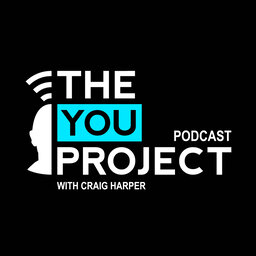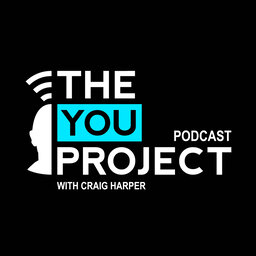#1759 Hyper-Focus - David Gillespie
This chat with Gillespo was recorded on New Year's Day and not surprisingly, the conversation took a few turns with perhaps the most interesting (and relevant for many of us) topic being that of our capacity (or lack thereof) to be able to focus, control our attention and keep our mind where we need it to be for efficiency, productivity and (in broad terms) successful outcomes.
 The You Project
The You Project


